Pashe Achi Bangladesh: A CSR initiative that stood by people during the pandemic.

Kamrul Ahsan (pseudonym) left home for work in Malaysia when he was just a teenager. He left with a dream for a better future. Seven years went by and Kamrul did not get to see his mother. He lived and worked as a migrant worker overseas.
All these years were spent working to pay off the debts his father incurred to send him abroad and support his family. Finally, the debt was paid off and Kamrul decided to spend a long vacation with his family. It was January 2020 and Kamrul came home for six months with some cash in hand.
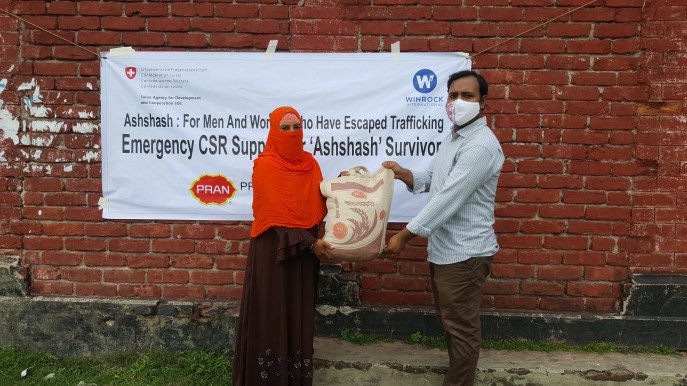
Little did he know that his six-month vacation would last more than two years because of the pandemic.
" [It was] as if I entered through one door and the covid entered through the other," said Kamrul, and sighed. Even just a year ago, he had hoped to go back to work. But when his boss refused to take him and blocked his visa, he lost all hope.
"I felt as if I was falling in a deep and dark well, and there was no way to get back up. Abroad, I worked in the hotel management sector and just before leaving, I got an increment. Things were good there.
I did not bring any paperwork from abroad as I thought I would be going back in a few months," said Kamrul.
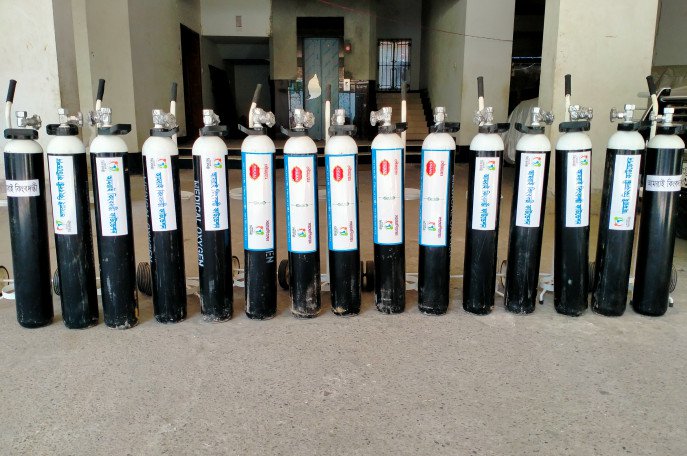
Kamrul has tried to get involved in work here, but he lost hope. He discovered that he needed high academic qualifications to work in hotel management in Bangladesh and just passing JSC was not enough. "It is easy to work abroad, as companies offer courses that help one grow their career," explained Kamrul.
As he was unemployed, naturally, he was again under a pile of loans. And he became desperate to find a job.
Soon, he struck luck, when he learned about a vocational training provided by Winrock - a non-profit organisation- that offered a job at the Pran-RFL. "I grabbed the opportunity and completed the three-month training on welding," said Kamrul.
After that, he was instantly hired by Pran-RFL under their Pashe Achi Bangladesh CSR initiative.
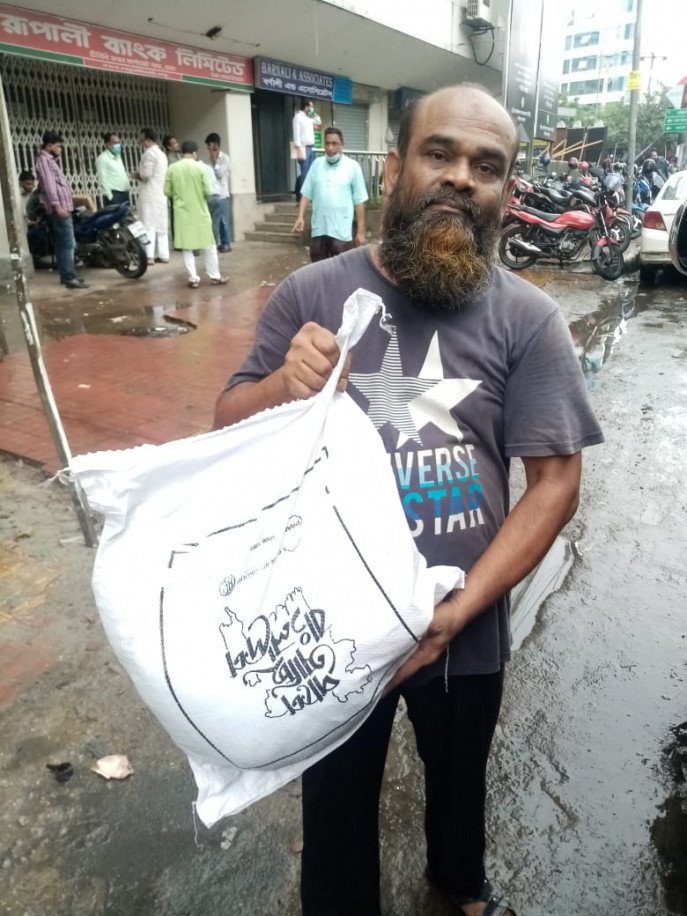
The programme has employed around 200 individuals in partnership with Winrock to aid migrant returnees and victims of human trafficking.
During the Covid-19 pandemic, as a company, its main target has been to make sure that its production remains unaffected.
"In the beginning, things seemed a little difficult to meet the target because we were going into back-to-back lockdowns. [However] we pulled it off and met our goal, but we saw a difference in our sales.
The goods we produce targeting lower-income consumers have seen a significant drop in sales. This made us think of an initiative such as Pashe Achi Bangladesh because we understood that a huge number of people are suffering in our country," said Nurul Afser, head of corporate brand at Pran-RFL group.
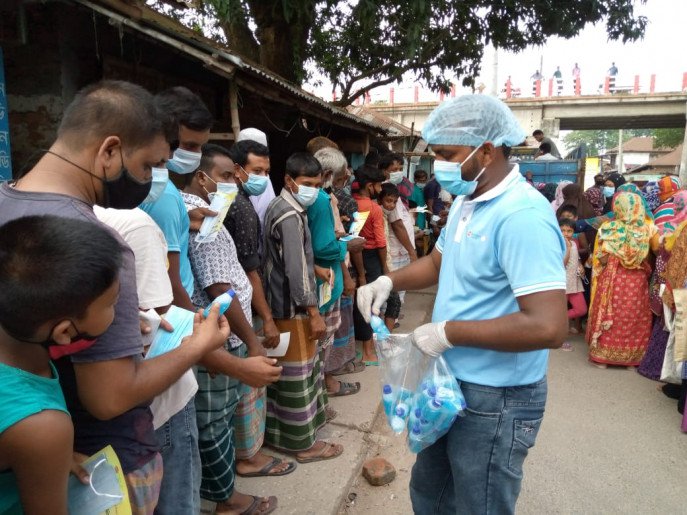
It started with providing food relief to middle-class families and supporting the local hospitals by helping them with health safety product distribution. The company also kicked off a campaign titled "Call for food program" for middle-class families who cannot ask for help directly.
"We thought it would not be quite successful as people would shy away from calling, but we got an overwhelming response for this campaign. We have always protected the identity of those who sought relief from our programmes as they did not want to go public," shared Nurul.
Each of the food bags contained food for one month, corresponding to the needs of the caller's family size. It had all necessary food items like rice, pulse, oil, salt, sugar, saline, biscuits, snacks and Pran's dry food. These food bags were distributed in Chandpur, Narail, Gazipur, Sylhet and 43 other districts.
Till date, the company has ensured food supply to more than 500,000 families. Interestingly, only one or two families called for a second time though it was open for all for a few months.
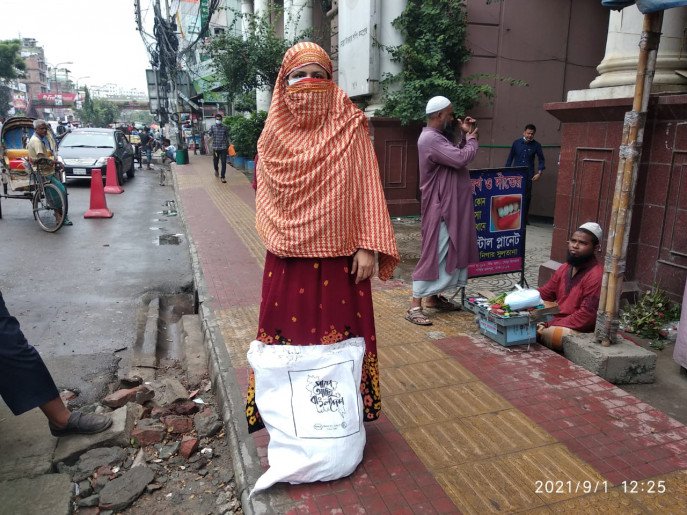
With time, however, they realised that giving away food does not solve the core problem, as many people have become unemployed during this pandemic, especially migrant workers who came back during the pandemic.
Understanding the depth of the problem, the company instantly partnered up with Winrock for a recruitment program with vocational training. It tracked down the unemployed people from different areas with the help of the local government and NGOs.
Last year, during the Covid-19 waves in the country, when everyone was in desperate need of oxygen cylinders, Pran-RFL extended their hand to distribute oxygen cylinders free of cost, also under this programme. It decided to supply industrial oxygen to those who were in dire need of it and lacked access to it.
Unfortunately, Pran-RFL did not have any factories inside Dhaka. But how could Dhaka remain off the list when people there were suffering the most? So, the company signed an agreement with a private company that supplied 7,000 oxygen cylinders to the patients inside Dhaka and 15,000 oxygen cylinders all across Bangladesh.
"For business purposes, we had oxygen cylinders in our stock. Without thinking twice, we decided to make those available. We knew that we could restock again, but the lives that will be lost can never be brought back. So, if our small sacrifice can bring peace to a family, why should we not do it?" remarked Nurul.
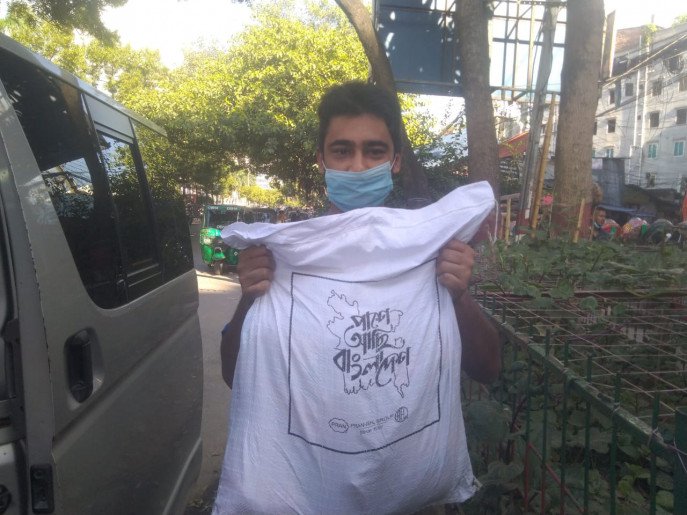
However, the pandemic is still ongoing, and people are getting affected even now. So, if the situation demands, would Pran-RFL take the same initiative?
"Since the very beginning, we have tried our best to stay beside people as much as we can, and we did so. We know that the pandemic is still here; hence, many of our campaigns are still going on, but the good thing is that we have also learned how to deal with it in the last [nearly] two years.
Yet, if the situation gets worse, we are always willing to help," Afser told The Business Standard.
 Pran Foods
Pran Foods


